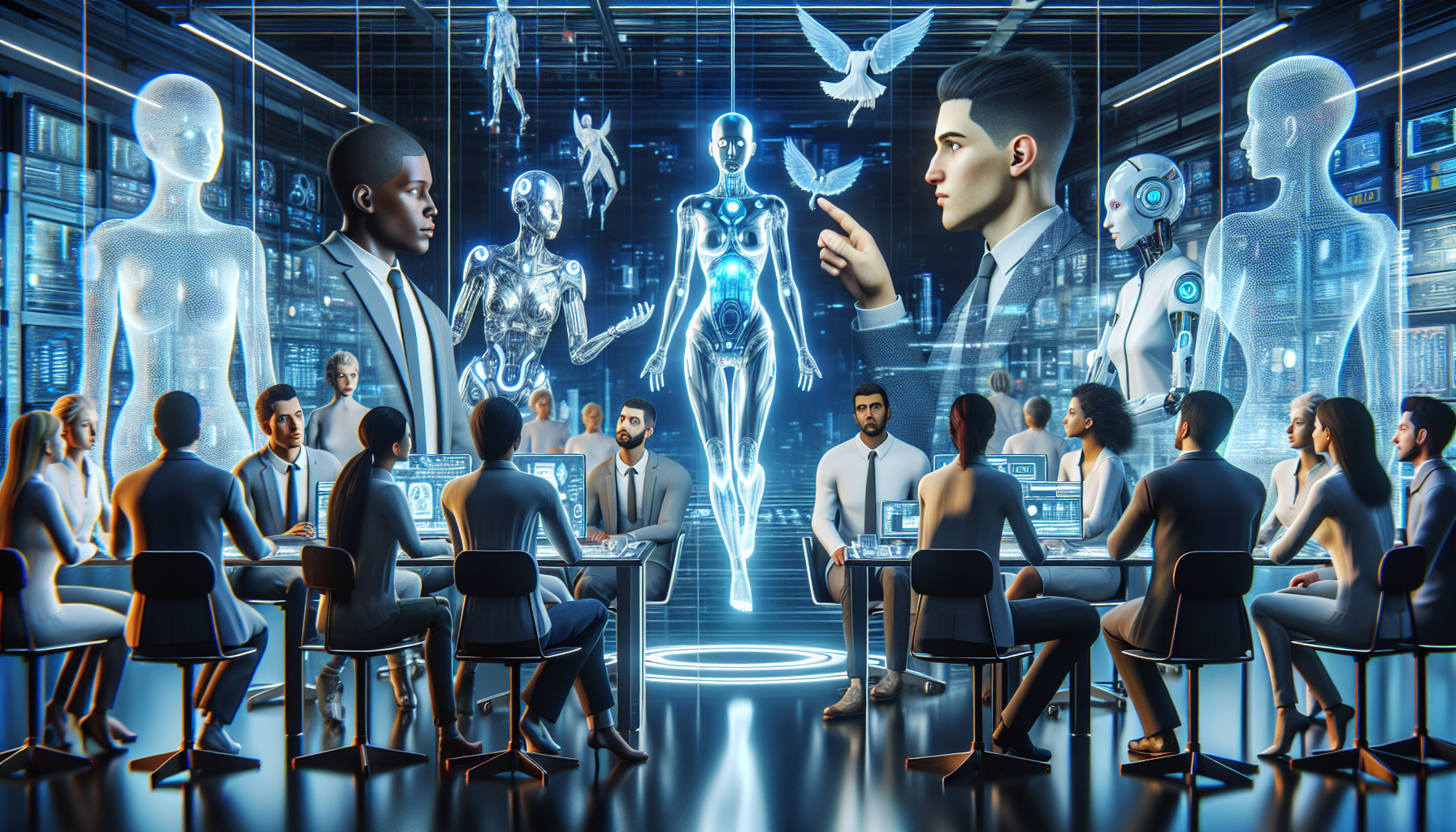Advertisements
AI: The Future of Technology – Solution or Threat?
Did you know that artificial intelligence (AI) is at the center of a technological revolution that promises to transform every aspect of our lives? The promise of AI is not just about technological advances; it’s about how it can redefine our society, shape the global economy, and even alter the structure of work. It’s exciting to realize that we’re at a historic inflection point. But are we really prepared to face the ethical and social challenges that come with this groundbreaking technology? 🤔
Advertisements
Furthermore, AI is already present in countless applications, from personal assistants like Amazon’s Alexa to complex medical diagnostic systems. Tech giants like Google and Microsoft are investing billions in developing increasingly intelligent solutions. However, with so much power at their disposal, the inevitable question arises: is AI a breakthrough solution or an imminent threat? How far can we go before these machines surpass human capabilities?
It’s crucial to understand that AI is not just a tool; it has the potential to evolve autonomously. Therefore, it’s imperative that we discuss how to regulate it effectively. Experts such as Elon Musk and Stephen Hawking have expressed their concerns about the potential dangers of AI run amok. Regulating this technology can be a double-edged sword: it can either slow down innovation or prevent catastrophes. But how do we strike the right balance?
Finally, it is essential that as a society, we ask ourselves about the role of AI in the future. We should explore how this technology can be used to solve global problems, such as climate change and health crises. Or, by focusing so much on solutions, are we inadvertently creating new threats? Now is the time to decide whether AI will be an ally or a challenge for humanity. Let’s explore the possibilities and limits of this fascinating technology together! 🌐
Advertisements
Introduction to Artificial Intelligence: A World of Possibilities 🌟
Artificial Intelligence (AI) is increasingly present in our daily lives, transforming the way we interact with technology and opening up a world of possibilities. But is AI the solution to all our problems, or could it be a potential threat? Let's explore this fascinating universe in a fun and lively way, with the aim of clarifying your doubts about the future of technology.
What is Artificial Intelligence?
Artificial intelligence is a branch of computer science that focuses on creating systems that can perform tasks that would normally require human intelligence. This includes things like speech recognition, language translation, decision-making, and even the ability to learn and adapt to new situations. So AI isn’t just about robots or machines; it’s about intelligent software that transforms the way we live and work.

How Does AI Work?
To understand how AI works, it is essential to know some fundamental concepts:
- Machine Learning Algorithms: These are the building blocks of AI. They allow systems to analyze large amounts of data and identify patterns, improving their skills over time.
- Artificial Neural Networks: Inspired by the human brain, these networks are composed of layers of interconnected nodes that process information in a complex and efficient way.
- Natural Language Processing (NLP): This technology allows machines to understand and respond to human language, making communication with AI systems more natural and intuitive.
Furthermore, it is important to highlight that AI is not infallible and often needs to be adjusted and monitored to avoid biases and errors.
AI Applications: Transforming Everyday Life
AI is revolutionizing several industries, providing significant benefits. Among the most notable applications, we can mention:
- Virtual Assistants: Tools like Alexa and Siri, which make it easier to perform daily tasks with simple voice commands.
- Autonomous Vehicles: Cars that can drive themselves, promising to reduce traffic accidents and improve urban mobility.
- Health: Faster, more accurate diagnoses, with AI helping doctors identify diseases through medical images and patient data.
- Education: Personalized learning platforms, adapting content to the pace and style of each student.
However, as with all technology, responsible and ethical use is necessary for these advances to be beneficial to society.
AI Concerns and Challenges
Despite its promise, AI raises legitimate concerns. Automation could lead to job losses in certain sectors, and there are concerns about data privacy and security. Furthermore, the lack of transparency in AI algorithms can create distrust. To mitigate these challenges, it is essential that governments, businesses, and society work together to create appropriate regulations and promote AI education.
Frequently Asked Questions (FAQ) 🤔
1. Will AI replace humans in the workplace?
While AI can automate repetitive tasks, it is unlikely to completely replace humans. Many roles still require human creativity, empathy, and judgment.
2. Is AI safe?
Like any technology, the safety of AI depends on how it is developed and implemented. Strict security measures and regulations are crucial to ensuring its safe use.
3. How can AI benefit society?
AI can improve efficiency, increase accessibility, and create new opportunities in a variety of sectors, from healthcare to transportation and education.
4. Can I learn to program AI?
Of course! With plenty of online resources available, anyone interested can start learning about AI programming and explore this growing field.
Conclusion
As we examine the role of Artificial Intelligence in the future of technology, it becomes clear that we are at a crucial inflection point in our relationship with machines. AI has the potential to revolutionize the way we interact with the world, from optimizing industrial processes to personalizing consumer experiences. However, it is equally important to recognize the challenges that this technology presents, including ethical, privacy, and security issues. As experts and enthusiasts in the field of technology, we are called to balance the pursuit of innovation with social responsibility.
Artificial intelligence is not inherently a solution or a threat; its influence will depend on how we choose to shape its development and implementation. Software engineers, developers, and decision-makers have the power and responsibility to guide AI toward outcomes that benefit society as a whole. It is imperative that we continue to foster informed discussions involving diverse stakeholders to ensure that technological progress advances in an ethical and sustainable manner.
As we navigate this ever-evolving technology landscape, one question remains: How can we maximize the benefits of AI while minimizing its risks? I invite you, dear reader, to reflect on this question and actively engage in this essential dialogue. Your participation is vital to ensuring that technology continues to serve as an engine of progress and innovation for us all.
Thank you for investing your time and attention in this crucial debate. Your curiosity and commitment are essential to shaping a future in which technology continues to be a powerful ally in improving quality of life. 🤖🔍




